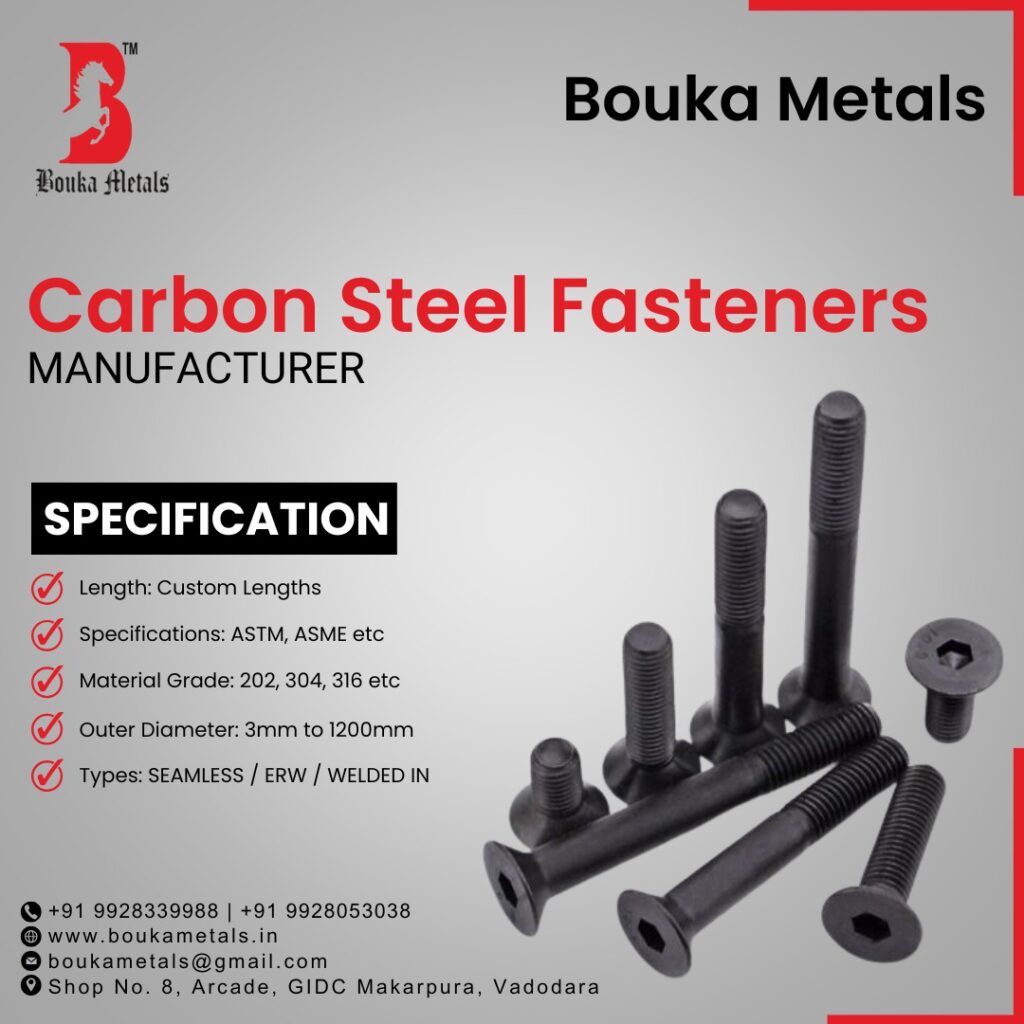Introduction
Carbon steel fasteners are essential components used in various industries to join different parts and structures. Their high strength, durability, and cost-effectiveness make them a popular choice for a wide range of applications. In this blog post, we will delve into the characteristics and applications of carbon steel fasteners, highlighting their importance in various sectors.
Types of Carbon Steel Fasteners
Carbon steel fasteners come in a wide variety of types, including:
Bolts: These are threaded fasteners with a head on one end and a nut on the other.
Screws: These are threaded fasteners with a head on one end and a pointed tip on the other, designed to be screwed into a pre-drilled hole.
Nuts: These are threaded fasteners that are used in conjunction with bolts to create a secure connection.
Washers: These are flat, ring-shaped components that are placed under the head of a bolt or screw to distribute the load and prevent damage to the underlying material.
Rivets: These are fasteners that are used to join two or more pieces of material together by creating a mechanical bond.
Material Grades
Carbon steel fasteners are available in various grades, each offering a unique combination of strength and hardness.
Common grades include:
Low Carbon Steel: This grade offers good formability and weldability.
Medium Carbon Steel: This grade offers higher strength and hardness compared to low carbon steel.
High Carbon Steel: This grade offers the highest strength and hardness, making it suitable for high-stress applications.
Specifications
Length: Custom lengths to meet specific application requirements.
Specifications: Adherence to industry standards like ASTM and ASME.
Material Grade: Available in various grades, including 202, 304, and 316 stainless steel.
Outer Diameter: Wide range of outer diameters from 3mm to 1200mm.
Types: Available in seamless, ERW (Electric Resistance Welded), and welded-in types.
Applications of Carbon Steel Fasteners
Carbon steel fasteners are used in a wide range of applications across various industries, including:
Construction: Carbon steel fasteners are used in the construction of buildings, bridges, and other structures.
Automotive: Carbon steel fasteners are used in the automotive industry for manufacturing various components, including engines, transmissions, and suspension systems.
Manufacturing: Carbon steel fasteners are used in the manufacturing industry for assembling machinery, equipment, and other products.
General Engineering: Carbon steel fasteners are used in various general engineering applications, including piping systems, structural frames, and mechanical assemblies.
Benefits of Carbon Steel Fasteners
Cost-Effectiveness: Carbon steel is a relatively inexpensive material, making carbon steel fasteners a cost-effective option for many applications.
Strength and Durability: Carbon steel fasteners offer good strength and durability, making them suitable for various load-bearing applications.
Versatility: Carbon steel fasteners are available in a wide variety of types and sizes, making them adaptable to diverse applications.
Availability: Carbon steel is readily available, ensuring easy procurement and timely delivery.
Conclusion
Carbon steel fasteners are essential components in various industries, providing reliable and cost-effective connections. Their strength, durability, and versatility make them a popular choice for a wide range of applications. By understanding the different types, sizes, and material grades of carbon steel fasteners, industries can select the most appropriate fasteners for their specific needs.





